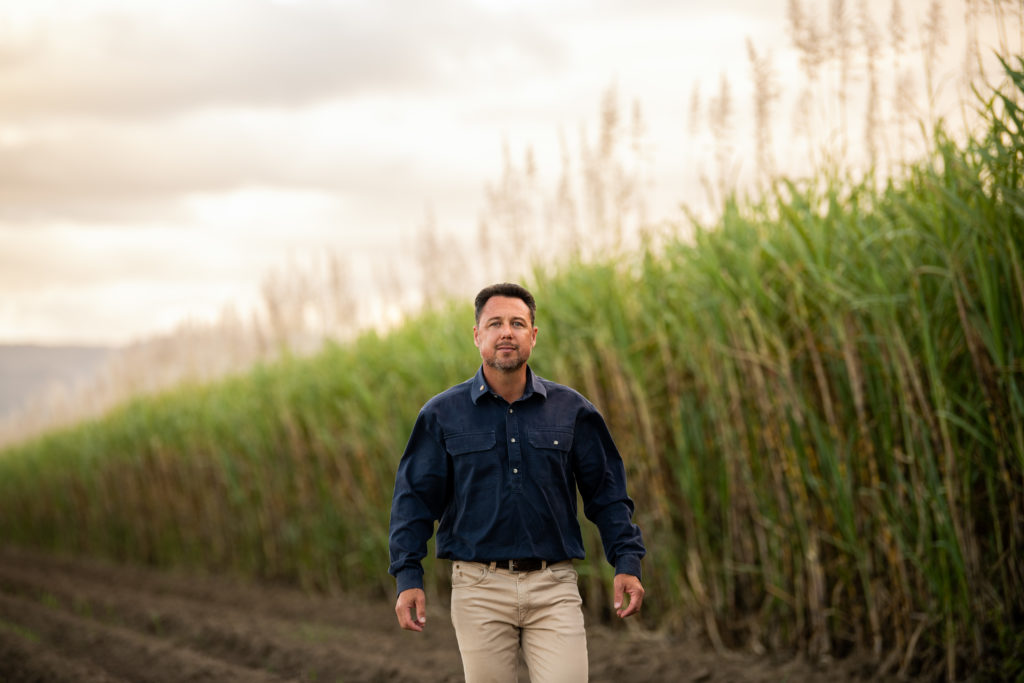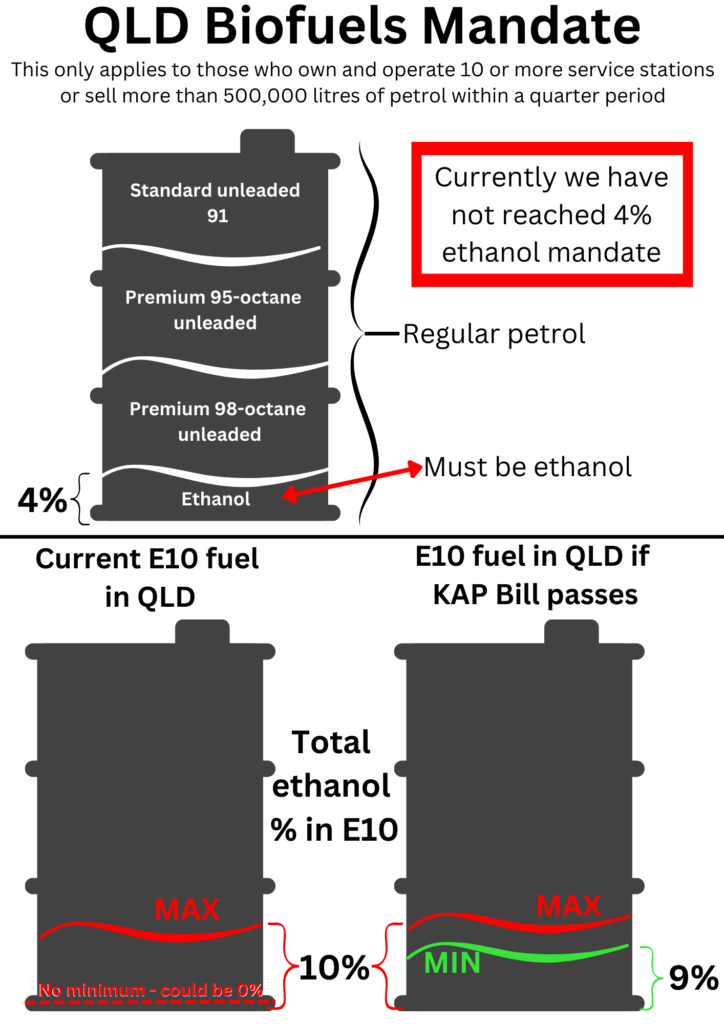Committee confusion delivers a blow to Biofuels Bill

Hinchinbrook MP and KAP Deputy Leader, Nick Dametto.
18 April 2023
Queensland’s track record of failing to meet its own legislated ethanol mandate looks set to continue following a recent lack of support for Katter’s Australian Party’s (KAP’s) Liquid Fuel Supply (Minimum Biobased Petrol Content) Amendment Bill 2022 (the Bill) by the Transport and Resources Committee (the Committee).
The Bill aims to increase confidence in the biofuels industry by requiring a minimum quantity of ethanol (nine per cent) be present in E10 fuels as well as an increase to penalties for fuel retailers who fail to comply with the State’s four per cent bio-based petrol mandate. Currently, E10 fuel can contain as little as one per cent ethanol whilst still being marketed as “E10” and Queensland has never reached its mandate of selling four per cent ethanol despite the mandate being in place since 2017.
In October 2022, Hinchinbrook MP and KAP Deputy Leader Nick Dametto introduced the Bill into the Queensland Parliament where it proceeded through the parliamentary committee process that concluded on the 14th of April when the Committee handed down their report and recommendations.[1]
Nine written submissions as well as public briefings and hearings was not enough to convince the Committee of the true value and inner workings of the Bill. Mr Dametto said the Committee’s recommendation and reasoning was disappointing to say the least and he was concerned about what the future will hold for biofuels in Queensland.
“The committee recommended that the Bill not pass, yet at the same time, acknowledged that a strategy is needed to improve consumer confidence in biofuels, which is precisely what the Bill sought to achieve,” he said.
“It is clear from the final report and committee comments that the consideration and examination of the Bill was impeded by confusion of the two quite separate and straightforward objectives.
“Despite the confusion, the Committee was able to recognise that advertising petrol containing as little as one per cent ethanol as E10 was doing nothing to promote consumer confidence in the E10 market. What the Committee clearly struggled with and failed to grasp was the “how” of the bill and in their own words ‘the level of regulatory work that might be required to enforce the proposed provision appears significant’, or in other words, it is all too hard,” Mr Dametto said.
At multiple stages throughout the life of the Bill, the Hinchinbrook MP busted the usual old-school myths about ethanol and responded to all Committee concerns and questions about how the Bill would operate. The two distinct objectives within the Bill were blurred together in the Committee’s final comments, confirming that the lack of support for the Bill was based on flawed reasoning.[2]
“What’s odd but also disappointing is that New South Wales has implemented the same measures as proposed in the Bill without issue but because we are in Queensland it is somehow deemed unachievable or too complex.
“Whether it was genuine confusion or a lacklustre analysis, there seems to be a typical and recurring theme when it comes to introducing legislation in the Queensland Parliament where good, practical legislation, not introduced by the Government, is continuously knocked back.
“The State Labor Government talks a big game when it comes to environmental policies, and on this occasion, they need to look past the Committee report and recognise this Bill for the straightforward and practical solution that it is.
“Let’s hope the State Labor Government don’t try and find every possible reason not to support this legislation.”

A diagram to illustrate the two objectives of KAP’s Liquid Fuel Supply (Minimum Biobased Petrol Content) Amendment Bill 2022.
The Bill will now proceed to a second reading later in the year.
-END-
[1] https://documents.parliament.qld.gov.au/tableoffice/tabledpapers/2023/5723T440-6EFC.pdf
[2] https://documents.parliament.qld.gov.au/tableoffice/tabledpapers/2023/5723T440-6EFC.pdf, page 16.





